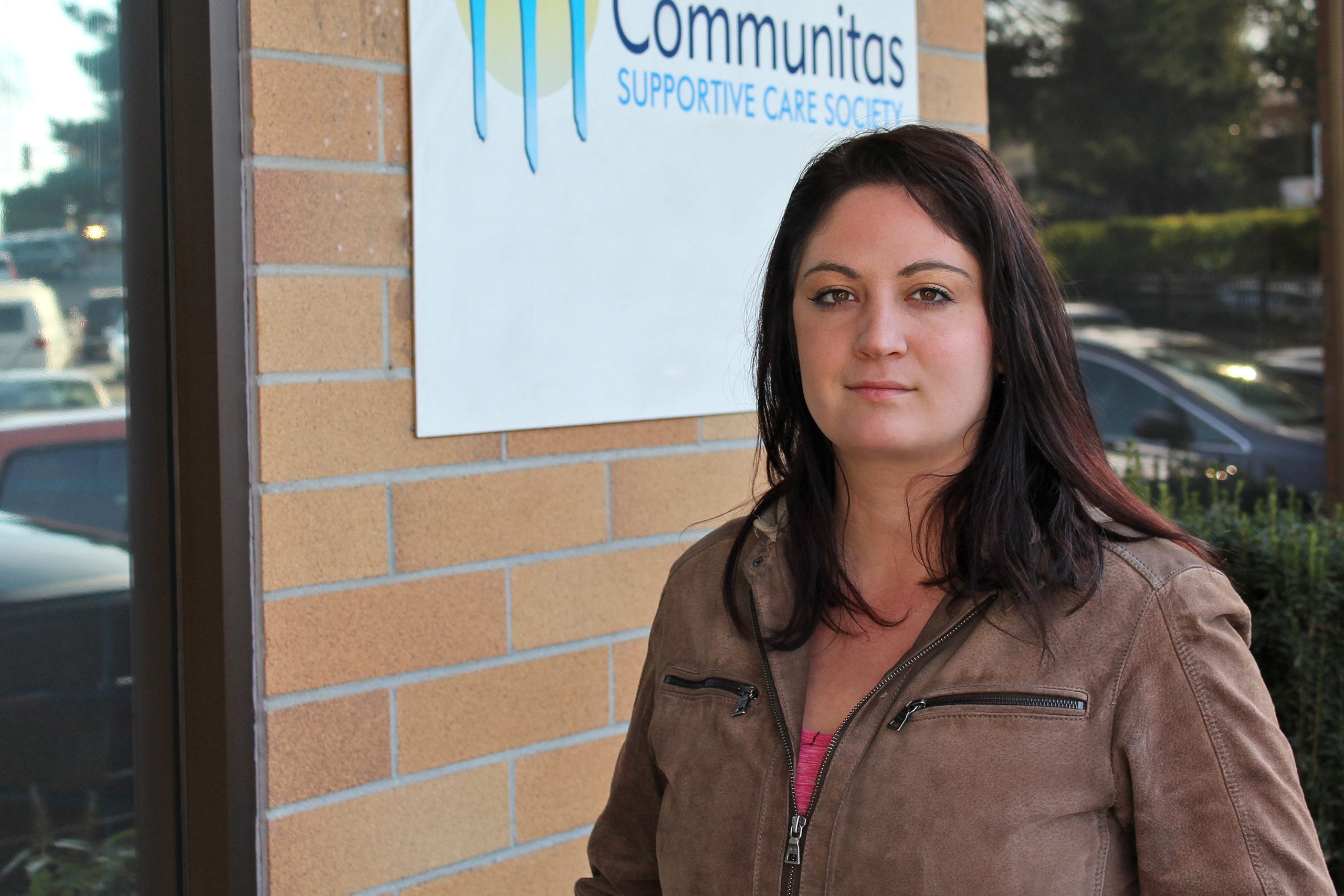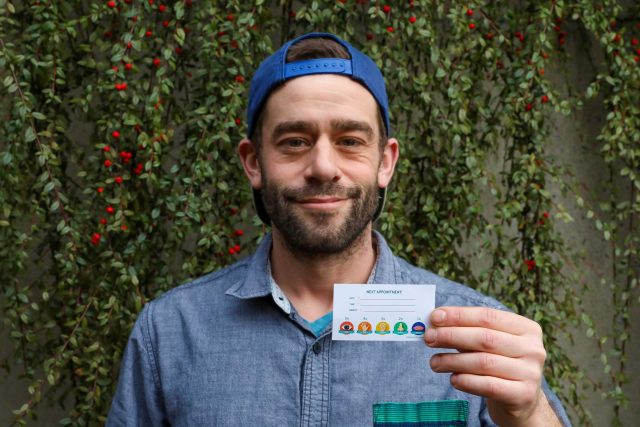
Services
Moving from Despair to Hope
Adria is living a good life. She is working full-time, enjoys artistic endeavours like painting and poetry, and she has healthy relationships. It’s a far different life than what she was living as a young adult when mental illness took its toll.
At that time, Adria began to hear voices and suffered from hallucinations. Caffeine and recreational drugs became ways to try and settle herself, not realizing that these could impact her mental health in a negative way. A psychotic episode led to hospitalization, and a diagnosis of anxiety, depression, and schizophrenia. But that difficult time also led her to a program that has changed her life: WRAP® Wellness Recovery Action Plan.
After being released from the psychiatric ward in Chilliwack, she became a member at the Cheamview Clubhouse, a community support for people living with mental health challenges. It was at Cheamview that she took a WRAP course being offered there by Communitas Supportive Care Society. Through WRAP, Adria says she was able to regain her life.

“WRAP taught me a lot about myself and my journey with mental health. It gave me a feeling of hope,” she says. “It’s given me wellness tools so I can help myself when I don’t always feel like there is anything else that will work.”
WRAP was developed by Mary Ellen Copeland who believed that recovery is possible for each person. Her five key concepts – hope, personal responsibility, education, self-advocacy, and support – enable each person to customize a wellness and recovery plan that works for them. For Adria, wellness tools include making time for painting, prayer, listening to music, or going for a walk. People are also part of her wellness toolkit.
Creating a support network gives you something to fall back on and helps you take charge of your own wellness. – Adria, WRAP facilitator
The knowledge that you can regain control of your life is important to Adria. When she was in crisis, she often felt like decisions were being made for her. Worse still, she was made to feel that recovery was impossible. After participating in WRAP, Adria realized that she had a voice in determining the direction of her life. Creating a crisis plan when she was well, gave her a tool to give her supporters so that when she has difficulty helping herself, she knows there are trusted people who will follow that plan and help her back to wellness.
“The crisis plan really helped me understand myself better and choose the kind of people who I know will support me.”
Today, Adria works for Communitas as a Peer Support Worker, walking alongside others who are on the journey with mental illness. She has also trained to be a WRAP facilitator and recommends WRAP to anyone seeking to improve their mental health.
“It can change your life,” she says. “You can go from being someone in despair to having the tools that give you hope!”
Related Stories

Coming Back to Self
Ryan says that WRAP – a mental wellness tool – helped him come back to the person that he once was.

Just Breathe
Inhale. Exhale, Breathe. Sometimes we forget that our breath is a tool to help us maintain our mental health. Follow along with the video at the end!

Just Notice
Sight. Sound. Touch, Smell. Taste. Our senses are tools we can use to restore our mental health. It’s as simple as just noticing.